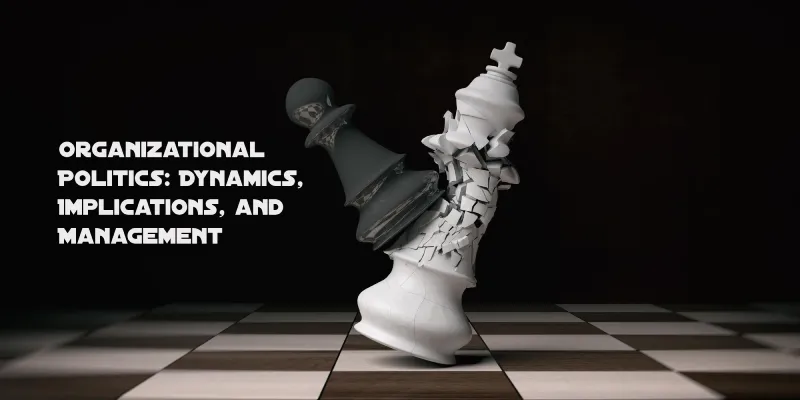
Organizational Politics: Dynamics, Implications, and Management
- [printfriendly]
Organizational politics refers to activities undertaken within an organization to acquire, develop, and use power and other resources to obtain one’s preferred outcomes in situations of uncertainty or conflict. It encompasses behaviors that are not part of an individual's formal role but are used to influence decision-making processes, often driven by self-interest. While organizational politics is sometimes seen in a negative light, it is a complex phenomenon that can yield both positive and negative outcomes depending on how it is practiced and perceived.
At its core, organizational politics arises from the inherent nature of organizations as social systems with limited resources, competing interests, and diverse goals. In such settings, individuals and groups use political tactics such as coalition-building, networking, persuasion, and lobbying to promote their agendas. These behaviors are particularly common in environments with ambiguity, high interdependence, or major organizational changes, where formal rules and structures may not fully dictate outcomes.
Political behavior within organizations can be either constructive or destructive. Constructive political behavior may support organizational objectives, enhance communication across departments, and facilitate decision-making. For instance, employees who skillfully navigate politics can advocate for necessary innovations or champion neglected but critical projects. On the other hand, destructive politics—such as backstabbing, favoritism, or information hoarding—can erode trust, reduce job satisfaction, and impair organizational performance. When political maneuvering becomes the norm, it may foster a toxic work culture characterized by fear, low morale, and high turnover.
A critical factor in understanding organizational politics is the role of power. Power is the capacity to influence others, and politics is often the means through which power is acquired and exercised. French and Raven’s (1959) five bases of power—legitimate, reward, coercive, expert, and referent—remain central to analyzing political behavior. Individuals often rely on informal sources of power, such as expertise, personal charisma, or alliances, to gain influence beyond their formal authority.
The perception of organizational politics also plays a vital role. Employees who perceive the work environment as highly political often report increased stress, lower job engagement, and a greater intent to quit. Interestingly, the impact of politics is moderated by individual differences. Research suggests that politically skilled individuals—those adept at understanding others and influencing them to act in ways that enhance personal or organizational goals—are better equipped to thrive in politically charged environments. These individuals can navigate organizational dynamics without appearing manipulative, thus maintaining credibility and effectiveness.
Managing organizational politics requires deliberate leadership efforts. Transparency in decision-making, clear communication of goals and values, and equitable resource distribution can reduce the need for political behavior. Additionally, fostering an organizational culture rooted in trust and integrity helps curb harmful political practices. Leaders should model ethical behavior and hold others accountable, ensuring that performance—not politics—is the primary driver of success.
In conclusion, organizational politics is an inevitable and influential aspect of workplace life. It can be a double-edged sword: when used ethically and strategically, it can support individual and organizational goals, but when abused, it can lead to dysfunction and decline. Leaders and employees alike must cultivate political awareness and skill to manage this reality constructively.
References:
- Ferris, G. R., Davidson, S. L., & Perrewé, P. L. (2005). Political skill at work: Impact on work effectiveness. Davies-Black Publishing.
- Mintzberg, H. (1983). Power in and around organizations. Prentice-Hall.
- Kacmar, K. M., & Baron, R. A. (1999). “Organizational politics: The state of the field, links to related processes, and an agenda for future research.” Research in Personnel and Human Resources Management, 17, 1–39.
- Vigoda-Gadot, E. (2007). “Redrawing the boundaries of OCB? An empirical examination of compulsory extra-role behavior in the workplace.” Journal of Business and Psychology, 21(3), 377–405.



